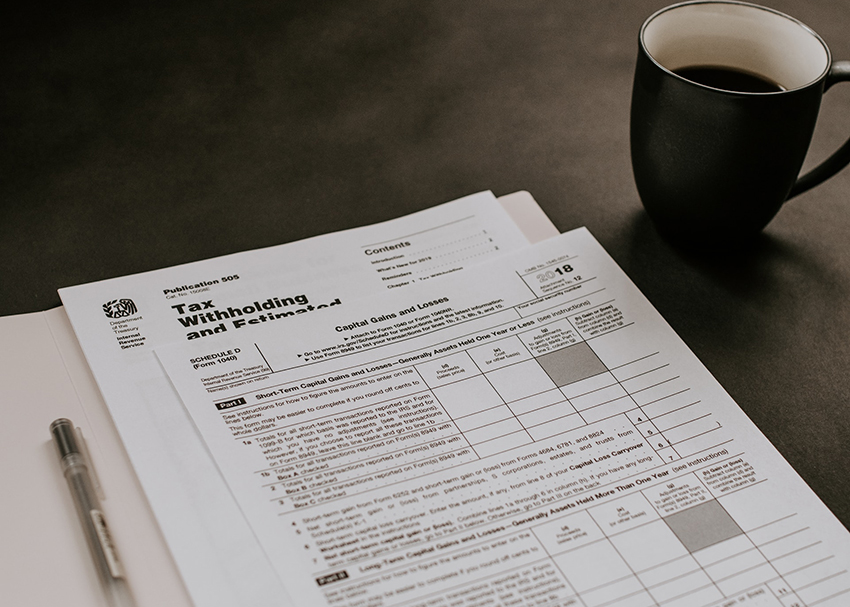Ensuring the sustained success of the biobased economy is of great importance to continued innovation, better patient outcomes, and the economic empowerment of many communities across the United States. And key that success is macroeconomic conditions that enable continued innovation.
Smart tax policies can help.
“A sound tax environment is critical for ensuring small biotechs can attract and retain capital necessary for developing their innovative products and solutions,” said Cameron Arterton, Vice President of Emerging Companies and Capital Formation at the Biotechnology Innovation Organization (BIO).
Specifically, Arterton told Bio.News helpful tax policies currently in place include “robust R&D incentives help offset the high cost of product development, incentives for investors to invest in the biotech industry.”
She also cited the importance of “ensuring the tax code functions as intended so small companies are not forced to bear unintentional costs.”
Still, there is room for improvement, said Arterton. She outlined five ways tax policies could be bolstered:
- Restore the R&D deduction that was replaced by 5-year amortization in the 2017 Tax Cuts and Jobs Act;
- Advance improvements to the payroll tax credit (such as extending the eligibility period);
- Encourage investment in small biotechs through tax incentives such as expanding section 1202 (the investor capital gains exemption);
- Reform Section 382 [of the Internal Revenue Code], which can unintentionally limit a startup’s use of its Net Operating Losses (NOLs) as a result of accepting investment; and,
- To help provide small biotechs with an immediate infusion of much-needed capital during these challenging economic times, allow small biotechs to receive the value of a portion of their NOLs upfront.
Tax policy and the Inflation Reduction Act (IRA)
The Inflation Reduction Act (IRA) included several tax credits helpful to the biobased economy. BIO’s Tamra Spielvogel, Director of Climate Policy, said such helpful items include:
- Section 13202: Extension of Second-Generation Biofuel Incentive (26 USC 40). This provides an income tax credit for second-generation biofuel production.
- Section 13203: Sustainable Aviation Fuel (26 USC 40B). This is a tax credit for the sale or use of sustainable aviation fuel (SAF) that achieves a lifecycle greenhouse gas emissions reduction of at least 50% compared to petroleum-based jet fuel.
- Section 13704: Clean Fuel Production Credit (26 USC 45Z). This provides a production tax credit for domestic production of clean transportation fuels, including sustainable aviation fuels.
- Section 13501: Advanced Energy Project Credit (26 USC 48C). This provides a tax credit for investments in advanced energy projects. Eligible recipients include:
- A project that: (1) re-equips, expands, or establishes an industrial or manufacturing facility for the production or recycling of a range of clean energy equipment and vehicles;
- (2) re-equips an industrial or manufacturing facility with equipment designed to reduce greenhouse gas emissions by at least 20 percent; or
- (3) re-equips, expands, or establishes an industrial facility for the processing, refining, or recycling of critical materials.
Of note, IRA Section 22003—“Biofuel Infrastructure and Agriculture Product Market Expansion (Higher Blend Infrastructure Incentive Program”—provides grants through the Higher Blend Infrastructure Incentive Program. This program aims to significantly increase the sales and use of higher blends of ethanol and biodiesel by expanding the infrastructure for renewable fuels derived from U.S. agricultural products and by sharing the costs related to building out biofuel-related infrastructure.
As a result of the short duration of these incentives, however, they will require swift implementation and incorporation of up-to-date, science-based modeling to determine eligibility, particularly in relation to the SAF credit. Like the U.S. Department of Energy’s GREET Model, “this SAF credit model should give sustainable fuel producers the ability to raise capital and make the investments necessary to expand biofuel production,” said a BIO letter to President Joe Biden in September 2022. Furthermore, ensuring that similar incentives are available for biobased manufacturing—to address the production of biobased chemicals and biobased consumer products—would also be helpful.
Federal policy also needs sound policy at the state level. Small biotechs in particular would benefit greatly from more state-level support.
How policy can strengthen the bioeconomy
More federal policies could be implemented to further strengthen the biobased economy and its future potential. Some policies that could be particularly helpful, according to Arterton, include:
- The American Innovation and Jobs Act, which was recently introduced in the Senate and would restore the R&D deduction. Companion legislation will be introduced in the House soon.
- The Forward Act, which would implement improvements to the payroll tax credit (such as extending the eligibility period).
- The American Innovation Act, introduced in prior Congresses, which would reform Section 382 to allow startups to avoid the unintentional application of Section 382 and preserve their NOLs through initial investment rounds.
- The IGNITE American Innovation Act, also introduced in prior Congresses, which would allow high-growth startups to access up to $25 million in NOL.
The biobased economy has proven to be uniquely resilient in the face of multiple challenges including the COVID-19 pandemic, global supply chain disruptions, and inflation. For its continued success, it must continue to enjoy the support of both federal and state lawmakers to ensure continued innovation, better patient outcomes, and the creation of new jobs for the economy of tomorrow.




